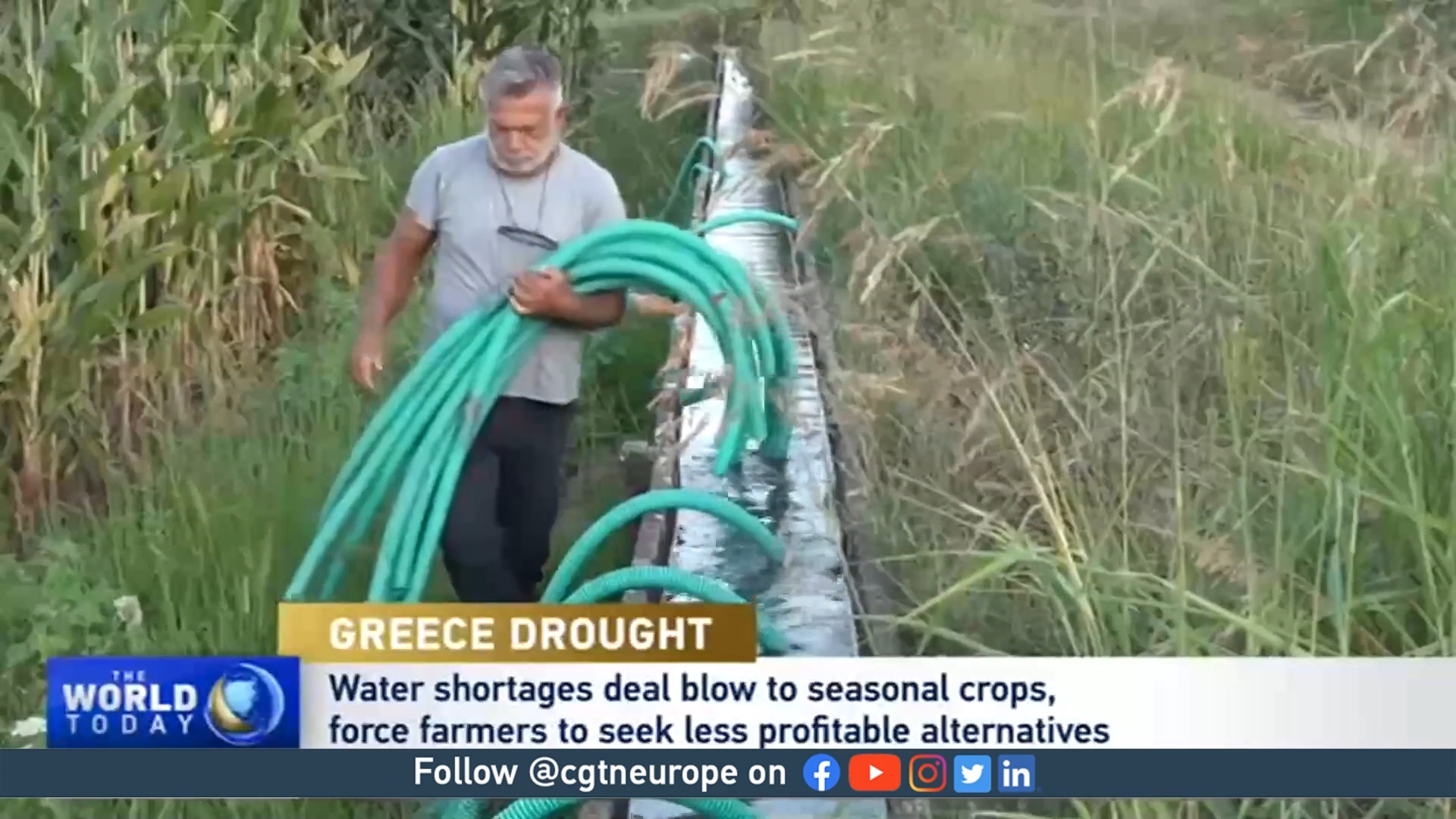02:56

Heatwaves and wildfires are heaping misery on farmers in Greece, who have revealed how extreme weather is devastating their crops and livelihood. Like many other European countries, Greece is suffering from soaring temperatures and water shortages that scientists say has been caused by climate change.
In Thessaly, sweltering heat is causing farmers' once profitable crops to burn.
"All my fields are experiencing the same problem from the heat, especially my corn field," says farmer, Thanasis Zografou. "During May, when I was supposed to seed the field, I couldn't because of increased rainfall forcing me to do it by the end of June when the heat started. The crops can't grow properly, resulting in a difficult farming season."
The difficult farming season is very much visible, with far drier fields than healthy green ones. Like many countries in Europe, falling groundwater levels are a big part of the problem, particularly in the Thessalian Plain, in the heart of the country's farmland.
A lack of fresh water from lakes and rivers following a mild winter has also exacerbated the problem.
READ MORE
UK triathletes fall ill after river swim
EU'S Borrell to visit Beijing
Zelenskyy hails West's air defense systems

Water shortages caused by extreme temperatures have burnt crops in Greece and heaped misery on farmers and their scorched farmland./CGTN.
Water shortages caused by extreme temperatures have burnt crops in Greece and heaped misery on farmers and their scorched farmland./CGTN.
Farmers have responded by planting crops that need less water, but this also means less income, and scientists warn this could cause other imbalances.
"Whether we like it or not, we need to reserve water, says Theofanis Gemptos, Professor of Plant Production & Rural Environment at the University of Thessaly. "It's the only way we can increase the number of irrigated farms in Greece because irrigated farms have three times more profit than dryland farms.
"I don't care what others say, for example, there is a new push by the government to plant crops that need less water. But if we do so, in my opinion, it will create food insecurity and price increases. I've raised the issue many times, but Athens isn't listening."
While the Greek government is planning to provide a tax rebate for those affected by the heat waves, many farmers warn that it won't be enough, with this year set to produce one their lowest yields on record. Some say they're even being forced to cut crops earlier, in an attempt to reduce losses and break even.
In a bid to help, a local group is working to provide water for the crops while also managing resources.
The Local Improvement Organizations for Irrigation in Karditsa is focusing its research and work to accustom the irrigation process with less water. The group says the approach is fast becoming the new reality for farmers.
Scenes like dried-up rivers, low water levels in lakes, and less irrigated farms are becoming more and more common in Greece. Scientists are sounding the alarm but one they say is not being heard by the central government.

Subscribe to Storyboard: A weekly newsletter bringing you the best of CGTN every Friday